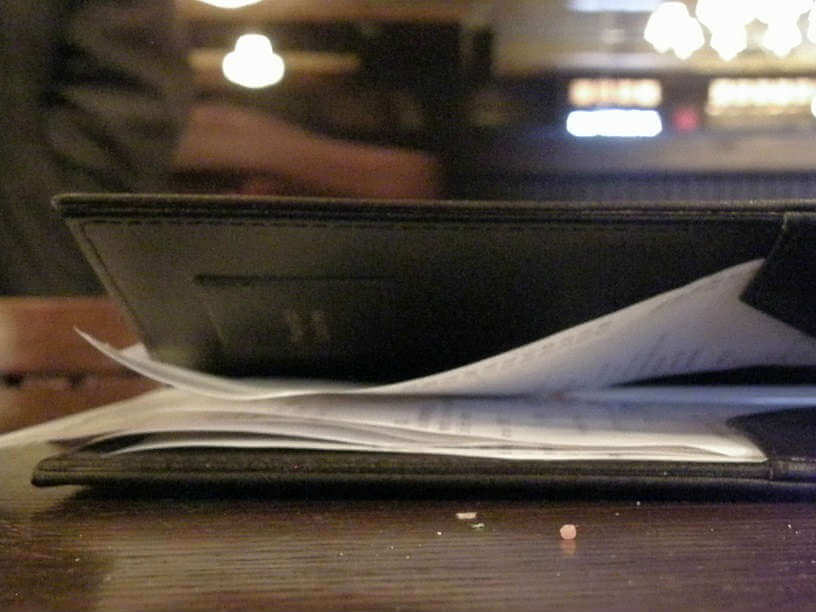10 Argentine Phrases to Know Before You Go

When traveling to another country, it’s a pretty common situation to find yourself in a place where no one speaks English. Thankfully in most tourist locations there will be people around who have picked up some English or even speak it fluently. By brushing up on a few key phrases, and working through how they sound with phonetic spelling, you’ll be light-years ahead of the tourists who assume everyone will understand them. These ten phrases will also help you out if the person you are speaking with has very broken English, the translation isn’t coming through very well or if you need to let them know you’ve lost the thread of the conversation.
“Do you speak English?”
In Spanish: “Hablas ingles?”
Pronunciation: (AH-blahs een-GLEHS?)
The most important question you will want to ask anyone is, “Do you speak English?” You never want to assume that because you are in a tourist-filled area that someone will know English or even want to speak in English. If they don’t, typically, they will find someone who does for you. It may be helpful to also say, “Lo siento, no comprendo espanol” which means, “I’m sorry, I don’t understand Spanish.”
“I understand a little.”
In Spanish: “Entiendo un poco.”
Pronunciation: (ehn-TYEHN-doh oon POH-koh)
It will be helpful to learn a few small words and phrases, but sometimes you simply cannot remember what the words mean, or perhaps you only some. You want to be respectful to the person and try to use as much Spanish as possible, so it may be helpful to let them know that you understand a little, but not a lot.
“Could you speak more slowly please?”
In Spanish: ¿Podría usted hablar más despacio por favor?
Pronunciation: (poh-DREE-ah oos-TEHD ah-BLAHR MAHS dehs-PAH-thyoh pohr fah-BOHR?)
Even the most practiced Spanish speakers may still need the fluent speaker to slow down a bit so that they can translate. Simply ask them to speak a bit slower and perhaps let them know if you only understand a little.
“I’m Lost.”
In Spanish: “Estoy perdido/a.” (if you are male use o, if you are female use a)
Pronunciation: (ehs-TOY pehr-DEE-doh/dah)
When visiting anywhere new, especially another country, it can be very easy to get turned around or to find that you are just simply lost. Make sure you know the exact names of your destinations, hotel, or airport so that even if translation is a problem, you can at the very least help them understand better.
“I need help.”
In Spanish: “Necesito ayuda.”
Pronunciation: (neh-seh-SEE-toh ah-YOO-dah)
You never know when tragedy will occur and the easiest way to get someone’s attention is to say, “I need help.” At this point you could perhaps tell them that you are lost. Your tone and facial features will most likely inform your listener with the context of help needed, emergency or not.
“I need a policeman/doctor”
In Spanish: “Necesito un policia/medico”
Pronunciation: (neh-seh-SEE-toh OON (poh-lee-SEE-ah/MEH-dee-coh)
In major emergency cases you may have to get right to the point and ask for a doctor or policeman. This will be great to know in case any major setbacks do occur.
“Where is the bathroom?”
In Spanish: “Dónde está el baño”
Pronunciation: (DOHN-deh ehs-TAH ehl BAH-nyoh?)
Unfortunately, this can be a surprise that hits you out of nowhere. If you are particularly in an area that you aren’t familiar with, you may quickly need to ask someone quickly where to find a restroom. Another helpful tip, look for signs with universal bathroom icons on them.
“How much is it?”
In Spanish: “Cuanto cuesta?”
Pronunciation: (KWAHN-toh KWEHS-tah)
Cost of course is always important, especially if you are in a really heavy tourist-area where prices are inflated, you may instead choose to buy it elsewhere, but first make sure you know the cost. It will also be helpful to perhaps have a currency calculator on your cell phone or something similar so that you can better understand how much you are paying for items in your own currency values.
“The bill please!”
In Spanish: “La cuenta por favor.”
Pronunciation: (lah KWEHN-tah, pohr fah-BOHR)
Often times, you will need to summon the waiter or waitress with a ma’am or sir (Senor, Senorita) and ask for the check. In many restaurants the server will not come over to you unless you ask for them.
How to order a steak: Rare, Medium Rare, Medium, and Well Done
In Spanish: Depends
This is possibly the most confusing and important phrase knowledge you will need. As a meat eating country, Argentina is famous for their steaks and asados. Argentina is also well known for overcooking their meat.
Many people will want to their steak Rare but it will come out medium or well. It is perhaps easier to describe how you want it:
Bloody: “Sangrante entonces” (SAHN-grahn-tay ehn-TOHN-sehs)
Blue: “vuelta y vuelta” (VWEHL-tah ee VWEHL-tah)
Medium Rare is meant to be ordered as “Jugoso” (hoo-GO-so) but will often come out overdone.
It may be helpful to say “Rosado con y bien jugoso.” (ROH-sah-DOh kohn byehn hoo-GO-so)
Medium: “a punto” (ah PUHN-toh)
Well done: “Bien cocida” (byehn koh-SE-thah)
If you find yourself in a bind, these basic phrases will help you navigate Argentina and some common problems visitors’ experience. Don’t be afraid to practice the words with natives—more often than not they will offer to help you with pronunciation and be happy to help. It may take a little extra effort and a lot of hand motions, but overall, trying to speak Spanish in Argentina will give you a better and more culturally aware experience of the country. When travelling through Argentina, consider buying travel insurance from Cover-More Australia for policies and options that are designed with Australian travellers in mind.
Image courtesy of Flickr user Dan4th Nicholas